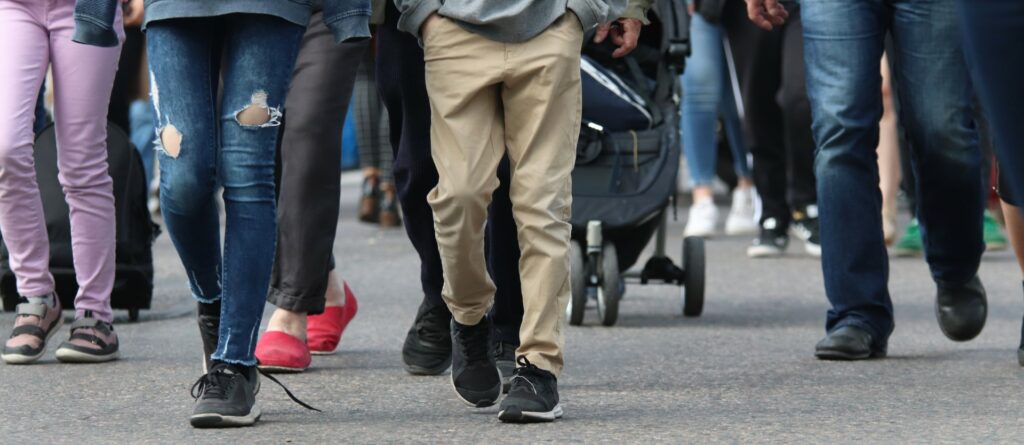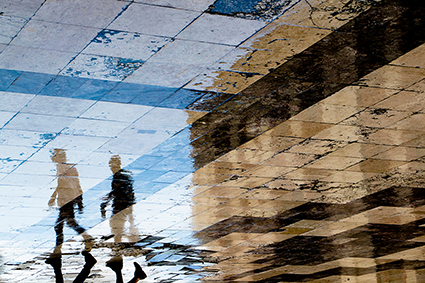Finland: Trust, polarisation, and the new role of the Church in the pandemic
Finland: Trust, polarisation, and the new role of the Church in the pandemic
The pandemic showed the need for hope and solidarity in Finnish society, as many people became more vulnerable and as polarisation deepened.
This article is part of our series on the social impact of COVID-19.
Effects of COVID-19 on Finnish society
In Finland, COVID-19 has affected people’s daily life economically, socially, and in terms of health too.[1] When the pandemic hit Finland in spring 2020, the number of unemployed increased by more than 200,000.[2] According to social workers, debt problems and the need for financial support and food assistance increased correspondingly.[3] At the end of the year, about a fifth of Finns reported that their economic situation had worsened during the pandemic.[4]
Loneliness and mental health problems increased as well, especially among adolescents, which was aggravated by a shortage of youth psychiatrists.[5] In relationship therapy, more and more couples considered divorce.[6] Staffing shortages worsened in healthcare services when COVID-19 patients began to fill the hospitals.[7] In addition, cold storage facilities for the deceased became overcrowded as more people wanted to postpone funerals because of the COVID-19 restrictions on church services.[8]
Polarisation of pro- and anti-vaccination groups
Despite the worsened economic, social, and healthcare situations, during the spring and summer of 2020, confidence in government, authorities, researchers, and media was exceptionally high in Finland.[9] However, compared to the overall population, supporters of the conservative right-wing party ‘The Finns’, trusted public institutions less than other people did.[10]
During the pandemic, confidence in institutions became even more polarised, as attitudes towards vaccines and medical science divided people.[11] Disinformation on social media brought together people believing in a range of conspiracy theories, often related to healthcare services and medical science.[12] During the pandemic, extremist groups took advantage of the polarised atmosphere, converting to their cause people disappointed in, and excluded from, society, especially the young.[13]
In Finland, anti-vaccination views increased among young adults and in small municipalities in particular.[14] Differences in attitudes towards vaccines did not appear only on (social) media but caused disputes and disagreements between families and close relationships too, sometimes even leading to breakups.[15]
The response of religious communities
Some Finnish people opposed COVID-19 vaccines for religious reasons.[16] However, officially, all the biggest religions in Finland support vaccines, and in 2021, the National Forum for Cooperation of Religions in Finland (consisting of Christianity, Islam, Judaism, Buddhism, and the Latter-day Saints) urged everyone to get vaccinated.[17] In October 2021, Teemu Laajasalo, bishop of Helsinki, even wrote that “the unvaccinated bears responsibility for the suffering and death of a neighbour,” which caused a spike in resignations from the Church as some interpreted his opinions as ‘unchristian’ and ‘hate speech’ against the unvaccinated.[18]
The impact on church services
COVID-19 restrictions imposed under the Communicable Diseases Act during 2020–22 did not apply to religious communities and thus, churches did not have to limit the number of participants in their services.[19] However, many churches still decided to livestream their services. For instance, the Evangelical-Lutheran Church in Finland limited the number of participants during the worst waves of the pandemic. In the Catholic Church in Finland, participation in services was made voluntary, even though under normal circumstances, Catholics must attend Mass every Sunday.[20] Participation in religious services led to controversy and received media attention, as sometimes people were prohibited to attend even the funerals of loved ones.[21] In some cases, where some religious communities did not limit participation, many attendees were exposed to the virus.[22] [23]
New role of the Church in the pandemic
The role of the Evangelical-Lutheran Church as a welfare service provider was also strengthened during the pandemic. Between 2020 and 2021, hospital priests offered support and pastoral care to nursing staff about 40% more than before COVID-19.[24] Parishes began to distribute more food assistance to the most deprived,[25] and when there was a shortage of COVID-19 vaccinators, some of the church deaconesses moved to work in public healthcare services as vaccinators.[26] Some parishes even offered their facilities for vaccination centres.[27] The Evangelical-Lutheran Church also responded to the increased mental health problems among adolescents by launching ‘walk-in therapy’ in Tampere in 2021.[28] Therapy was given free of charge and without an appointment or referral for 16–29-year olds. The concept was later adopted in other parishes too.[29]
Where to next?
The pandemic showed the need for resilience, hope, and solidarity in Finnish society,[30] as many people became more vulnerable economically, socially, and in terms of health. In addition, polarisation between groups deepened. It will be interesting to see how the role of the church will develop in the future, and whether new practices – such as the streaming of services and the increased variety of duties for church employees – will be introduced on a permanent basis. Nevertheless, institutions providing help, support, and consolidation became valuable in a new way during difficult times.
Our team of analysts conducts research on topics relating to religion and society. In the past month, the topics of traditions, tension, COVID-19, and leadership were trending. Find out their relationships on the EARS Dashboard.
Sources
[1] Näin korona iski suomalaisten hyvinvointiin: erityisesti pääkaupunkiseutu kovilla, kertoo THL:n kysely – katso oman maakuntasi tulokset.
[2] Koronaepidemian vaikutukset hyvinvointiin, palveluihin ja talouteen.
[4] Näin korona iski suomalaisten hyvinvointiin: erityisesti pääkaupunkiseutu kovilla, kertoo THL:n kysely – katso oman maakuntasi tulokset.
[5] Koronaepidemian vaikutukset hyvinvointiin, palveluihin ja talouteen.
[6] Suomalaisparit rynnivät nyt terapiaan – vastaanotolla toistuu ”kamala klisee”, asiantuntija sanoo ja kertoo, kuinka sen voi välttää.
[7] Professori: Tehohoidon kuormitus on jo niin hälyttävällä tasolla, että henkilökunta voi joutua harkitsemaan joululomiensa siirtoa.
[8] Vainajien kylmäsäilytystilat sairaaloissa täyttyvät, koska monet lykkäävät hautajaisten järjestämistä.
[9] Luottamus asiantuntijoihin vahvaa koronakriisissä, mutta epäilijöitäkin löytyi.
[10] Ibid.
[11] Rokotevastaisuus näkyy nyt sairaaloissa myös lääkevastaisuutena – osa kuitenkin katuu rokotteen ottamatta jättämistä.
[13] Nuoret ääriliikkeiden rekrytoinnin kohteena.
[14] “Rokotetut eivät voi olla rokottamattomien panttivankina”, sanoo THL:n Hanna Nohynek – tämä tiedetään heistä, joita ei ole rokotettu.
[15] Koronarokotus repii rikki jo parisuhteita ja perheitä: ”Tämä selkeästi jakaa mielipiteitä kaikissa ihmissuhteissa”.
[17] Useita uskontoja Suomessa edustava järjestö: Uskonnolliset yhteisöt kannustavat koronarokotuksen ottamiseen.
[18] Piispa Teemu Laajasalon mielipidekirjoitus rokotuksista aiheutti eropiikin kirkosta.
[19] Miksi jotkut uskonnolliset yhteisöt kokoontuvat, kun muut noudattavat tiukkoja rajoituksia? Kolmen kirkon edustajat kertovat, miten ne ehkäisevät koronaa.
[20] Ibid.
[21] Koronarajoitukset tekivät isän hautajaisista pienet ja hiljaiset – Suvi Ylipää: “Tuntui, että jotain jäi puuttumaan”.
[22] Väki kokoontui hautajaisiin eri puolilta Suomea Kouvolaan – noin 100 mahdollisesti altistunut koronatartunnalle.
[23] Jyväskylässä jopa 700 ihmistä karanteeniin hengellisessä tilaisuudessa tapahtuneen joukkoaltistumisen vuoksi, tartuntoja kaikkiaan 50.
[24] Sairaalapappien tuki hoitohenkilökunnalle kasvoi merkittävästi korona-aikana – potilastapaamisista osa siirtyi puhelimeen ja nettiin.
[25] e.g. Tampereella ruoka-avun tarve jatkuu korkeana, seurakuntien hätäapukeräys toi 110 000 euroa.
[26] Diakonissat avuksi rokottamiseen? – Kirkko vastaa sosiaali- ja terveysministeriön avunpyyntöön.
[27] e.g. Kaarinan seurakunta luovuttaa Kaarinan kirkon rokotuskeskukseksi.
[28] Kirkon walk-in-terapia auttaa nuoria ilman ajanvarausta.
[29] Ibid.






